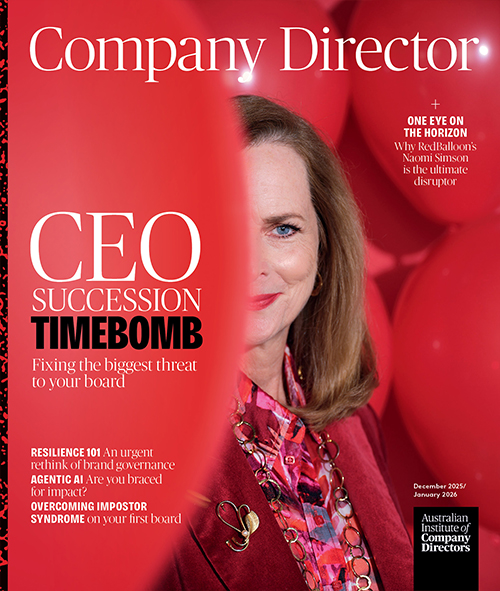Transitioning from a successful executive career to a board of directors role requires a strategic shift in resume content and presentation. The executive resume that landed you in the C-suite will not have the same impact when pursuing a board position. Securing a board director role demands a resume specifically focused on highlighting your governance experience, strategic advising capabilities and leadership perspective.
This document should showcase your credentials as a strategic thinker and advisor, not provide exhaustive detail on previous operational responsibilities. Follow these recommendations to adapt your executive resume into a board director resume that captures the attention of recruiters and nominating committees.
Focus on Governance and Strategy
A common mistake executives make when crafting their first board director resume is focusing too heavily on details of their operational career. While profit and loss figures, talent management accomplishments and other responsibilities are important for an executive resume, they don't necessarily translate when applying for director positions. Your resume should highlight the value you will add in the boardroom, not just promote abstract achievements in previous positions.
Instead, emphasise your breadth of experience and specific governance skills. Any prior experience serving on a board, even if an advisory or nonprofit role, should be featured prominently. Detail how you have developed regulatory knowledge or experience with high-level activities like mergers and acquisitions. Demonstrate through concrete examples how your perspective and approach has become more strategic and visionary over time.
For instance, a former CIO would want to focus their resume on IT expertise as it relates to emerging risks and long-term strategy. Rather than listing daily responsibilities, call out how major initiatives you led contributed to the overall strategic direction of your company. This shift to emphasising advisory skills over tactical ones better conveys the value you can add in the boardroom.
Customise and Contextualise
Resist the urge to blanket the market with a generic resume. Each resume you submit for a board director role should be tailored to the company and position. Thoroughly research the organisation prior to applying to understand their current challenges, growth goals and areas of concern. Review the profiles of current board members to identify any skill set gaps you may be able to fill.
Then highlight the most relevant aspects of your background for that particular role. For example, past experience with acquisitions would be featured more prominently for a growth-focused board role. Your work revamping cybersecurity policies would move to the forefront applying to a company that recently faced data breaches.
This level of customisation requires more work upfront, but it can give your resume an edge over more generic applicants. When evaluating board director candidates, nominating committees want to see not just impressive credentials, but evidence the candidate really understands how they specifically can contribute to and meet the needs of this board.
Convey Leadership Perspective
A board director resume should communicate that you have the perspective and strategic approach needed to guide an organisation at the highest level. This means moving away from listing granular responsibilities and focusing more on vision, impact and governance.
For example, rather than saying “Led financial planning activities including budgeting, analysis and cost containment,” say something like, “Developed innovative budget strategies that funded company expansion into two new markets in the face of declining revenue in core segments.”
Leave out non-essential details about early career activities or responsibilities unrelated to the board role. Keep it high-level and focus only on the aspects of your experience that demonstrate strategic thinking, governance capabilities and leadership potential.
Showcase Diversity of Experience
Many boards today value directors who bring multidimensional perspectives from varied backgrounds. Therefore, your resume can highlight diverse experiences that showcase your ability to adapt and succeed in any environment. For instance, consider featuring:
- Overseas assignments dealing with different cultures and business norms
- Experience with both small startups and large corporations
- Roles across complementary or contrasting industries
- Nonprofit board experience
- Work with companies at different stages of growth
This demonstrates an ability to quickly assess and add value to a wide range of organizations and situations – a key skill for a board director.
Spotlight Specialised Expertise
While no director is elected solely for niche expertise, highlighted specialised skills and experience can make you stand out, especially if they align with the company’s strategic needs. For example, specialised expertise could include:
- Deep technology or digital transformation experience as companies navigate disruption
- Legal acumen and regulatory knowledge in highly compliance-driven fields
- Cybersecurity knowledge as data threats increase
- Sustainability and ESG expertise as stakeholder pressures mount
However, you still want to demonstrate strategic thinking and ability to contribute beyond just your domain expertise. For a CFO, do not just list compliance initiatives accomplished. Explain how your financial stewardship contributed to growth, supported strategic objectives, and identified risks.
Succinct Messaging
Remember, board directors value clear and concise communication. Your resume should reflect that. Stick to 1-2 pages with a short career summary section up top. Use bullet points to call out key qualifications, achievements and areas of expertise.
Avoid dense paragraphs and leave out extraneous details. You want the most important selling points about your candidacy to jump off the page quickly when reviewers scan your document. Also include a short “value statement” that concisely states what you will bring to this board role.
This compelling and confident statement belongs right at the beginning, before diving into your career details. It should act as a hook highlighting your fit in a way that motivates readers to continue reviewing your impressive credentials.
Leverage Feedback and Assistance
Don’t be afraid to seek professional assistance crafting your resume, but make sure it comes from experts experienced specifically in board director resumes, not just general executive resume writers. Invest time networking and finding a strong mentor that can provide advice tailored to your target board's preferences.
Schedule informational interviews with directors familiar with the company you are pursuing and get their input on how best to position your experience. With expert perspective and guidance, you can craft a document sure to impress nominating committees and recruiters.
Already a member?
Login to view this content



